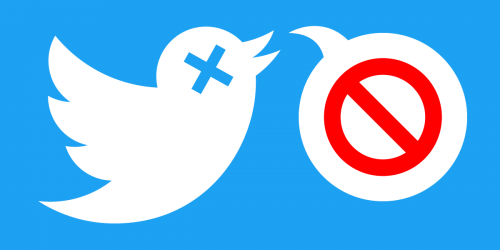We were pleasantly surprised by Verizon’s announcement this week that it will become the first major telecommunications company to release a transparency report. In early 2014, Verizon will follow in the footsteps of companies like Google, Facebook, and Apple, and will finally adopt this best practice and begin to tell its customers, and the American public, the details about how often law enforcement comes knocking with requests for user data. Verizon’s welcome announcement came the same day that Google updated its transparency report, which it has regularly released since 2010. Google's latest report details significant and troubling increases in government requests to remove content from the Internet.
Verizon's announcement comes only after significant pressure. Last month, the telecom giant's shareholders wrote a letter demanding the company be more transparent about how it shares customer information with law enforcement and the government. But Verizon took a stance against its shareholders, claiming that the shareholders had no ground to demand the company take any action.
Now, one day after the White House Review Group on Intelligence and Communications Technologies released its recommendations for NSA reforms, Verizon appears to have made an about-face on comments the company made earlier this year that mocked efforts by other tech companies to be more transparent. One Verizon executive called transparency efforts to be a bit of grandstanding, saying those companies merely, “waive their arms and protest loudly so as not to offend the sensibility of their customers.”
We welcome Verizon's change of heart. EFF has long called on corporations to be transparent about what they do with the data that users entrust to them. Once the report is issued, Verizon will be the first telecom company to receive a star for transparency reporting in our next Who Has Your Back Report for 2014, where we assess major Internet companies' commitment to standing by the rights of users in the face of government requests for personal information about their customers.
In 2014, we’ll be looking to the rest of the telecom industry to follow suit. AT&T continues to refuse to publish a transparency report, despite receiving similar shareholder demands to be more forthcoming about how the company shares the personal data of their customers with the government. In a letter to the Security and Exchange Commission, AT&T argued that public debate about mass surveillance has focused on the correctness of government actions, not on corporate actions. AT&T is dead wrong; both AT&T and Verizon were complicit in NSA spying, even before the secret FISA court issued its first rubber-stamp order compelling them to do so.
Unfortunately, Verizon's transparency report will be stifled by the Justice Department's irrational and unconstitutional restrictions on how transparent companies are allowed to be. With a mix of gag orders and other burdensome restrictions, companies are only allowed to disclose in very broad ranges the number of national security orders and the number of accounts affected.
“Verizon is working with the U.S. government regarding the detail the company can report on the number of National Security Letters it received last year,” the company's announcement reads. “Similar to transparency reports published by other major Internet companies, Verizon’s report will not disclose information about other national security requests received by the company.”
EFF whole-heartedly looks forward to reading Verizon's first transparency report when it's released, and we encourage the company to join the fight against the government’s position that it must lie by the omission of national security requests from the report. EFF strongly urges other telecommunications companies to adopt this industry standard best practice. With transparency reports, companies have the opportunity to deepen their consumers’ trust by being open about how governments around the world collect and use our private data. We hope Verizon’s first step will open the door to more wireless and broadband providers to begin regular transparency reporting.
UPDATE: Moments after this post went live, AT&T made its own about-face and announced that it too will release a transparency report next year. While we welcome AT&T’s announcement just as we welcomed Verizon’s, AT&T has specifically noted that it will decline to push the Justice Department to publish even general numbers regarding intelligence agency requests. AT&T’s failure to push for the right to fully and accurately inform the public about our government’s actions is extremely disappointing, and we urge AT&T to reconsider its position.










